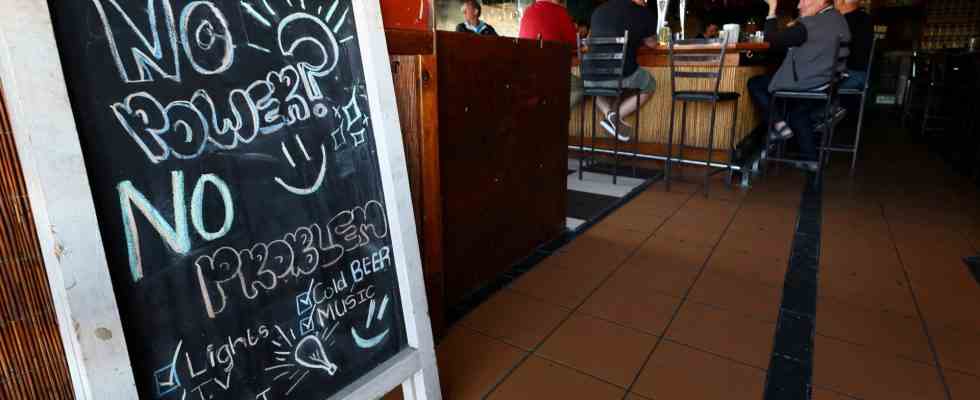Status: 03/20/2023 10:35 a.m
There has been a power outage in South Africa every day for months. Entire sectors of the economy are now dying, and unemployment is growing. The economy, which is actually stable, is threatened with a recession.
South Africa had just started to recover from the effects of the Covid pandemic. And actually, the second largest economy in sub-Saharan Africa is an economically stable country – with great economic potential. Actually.
There are many natural resources that bring in a lot of money. Actually. The entire population could be supplied with the agricultural products. Actually. The supply of electricity should increasingly come from renewable energies. Actually.
But there are big problems with the energy supply. The state energy supplier Eskom could tear the entire economy into the abyss. Up to twelve hours of power outages across the country, every day – and have been for months.
Outdated infrastructure, corruption and sabotage cause major problems. High quality coal is exported; the South African power plants receive inferior coal, which causes immense damage there. Eskom makes a loss of 50 million euros every month. The economy loses the same amount due to the power cuts – every day.
Canceled surgeries, problems at the waterworks
Whole industries perish. More and more companies are going bankrupt because they lack the electricity for their production, for example in the mining industry. In North West province, a chicken farmer had to kill 40,000 chickens overnight because the oxygen supply stopped working.
Operations in hospitals have to be cancelled. Funeral homes are urging families to bury their deceased immediately because the cold rooms in the homes have broken down. Due to the constant switching on and off, more and more pumps in the waterworks are failing. A single company ruins an entire economy.
“Miserable Numbers”
Analysts and the South African central bank had actually forecast growth of 2.3 percent for 2023. That has now been corrected to 0.3 percent. Some experts say South Africa is already in recession. The International Monetary Fund is more optimistic, expecting growth of 1.3 percent for South Africa in 2023.
“But those are both miserable numbers,” says Jens Papperitz, President of the German-South African Chamber of Commerce. The country needs at least four to five percent economic growth. This can also be achieved with a combination of increasing tourist numbers, stable agricultural production and booming mining – but only once the electricity problem has been solved.
Warning to Foreign Investors
The Financial Action Task Force, an international body to combat money laundering, to which more than 200 countries belong, has placed South Africa under special surveillance and put it on a so-called gray list. South Africa is not doing enough against money laundering. This is a warning to foreign investors.
Then the rating agency S&P Global Ratings downgraded South Africa from “positive investment climate” to only “stable” – another warning not to invest in South Africa. The reasons given were the constant power cuts and a vulnerable infrastructure. Papperitz counters that foreign investors do not make their decisions dependent on individual factors such as power failures. Rather, long-term political stability is more important.
inflation and social instability
South Africans are suffering from the crisis. The current inflation rate for food is over 13 percent. Many people have lost their jobs because of failed businesses. A strike by healthcare workers that ended just a few days ago ended in violence.
Traveling abroad is becoming increasingly difficult for many South Africans, as the national currency, the Rand, is weakening. All of this leads to an increase in social insecurity. A left-wing populist opposition party has threatened a “day of national standstill” for today. The army was put on alert.

